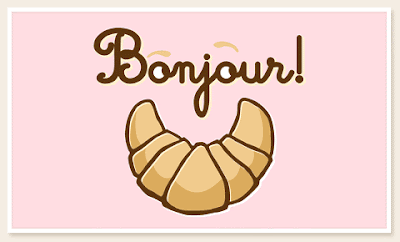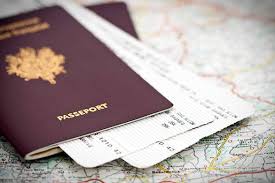Bonjour, a mandatory word in France
In France there is a word pronounced several dozen times a day: “Bonjour” (i.e. “Hello”). This preliminary form of politeness is so widespread that one can almost think that it is universal. But it is not.
I read here and there articles written by non-French speaking natives (written especially by English speakers) about the importance of this word and how much its use in France is surprising. Personally I am so used to it that during my first trips outside France (especially to England and the United States) I could not imagine even asking my way without first saying hello. It took me a while to realize that this surprised my interlocutors. On the contrary, I thought people who asked a question directly to a salesperson without saying hello, or even saying “Excuse me …” were pretty rude …
It’s the same about Persian keywords, nobody asks a question starting by “hello”. At the very most you can begin by “bebakhshid” (“excuse me”) but more often by a “Madam ….” or “Sir …” pronounced on a certain characteristic tone.
Yet in France there is no question of approaching someone, even for an innocuous question, without beginning with a “bonjour”. Approaching someone without first pronouncing the word “bonjour” usually denotes a lack of politeness. It can be replaced by “bonsoir” (good evening) after dark, but even then “bonjour” (which literally means “good day”) is not really shocking.
I happened very few times in France to start a sentence without “bonjour” and I bit my fingers every time! It was always an emergency, not a vital emergency, but a “I see the bus approaching and if I don’t hurry I will miss it” or “My children who are a little further in the store start putting a mess, I have to go and stop them” kind of emergency. And almost every time I was answered at least coldly, and one or two times I was spotted by my interlocutor who answered “bonjour” and waited for me to answer to it, before deigning to come back to my question!
However I like the dual roles of “bonjour”: cordiality and clarification. Indeed it is first of all a sign of cordiality, it means “I enter your space and I ask you permission to disturb you”. In this sense it is taught very early to children and allows them to be included in social exchanges.
It also makes it possible to gauge the interlocutor and to clarify the atmosphere of the upcoming conversation.Indeed, according to the tone on which the other person answers you, you know who you are dealing with and what you stand for. A not friendly bonjour immediately puts you in the mood, you know that this individual is mad about you or at least is in a bad mood. You can then shorten the conversation, or adjust your tone. This is especially useful in Government Services: when you arrive at the counter, depending on the tone of the answer to your greeting you know what to expect!
There is worse than not saying bonjour: it is not receiving an answer to your bonjour! This happens sometimes when you join a group, for example in a waiting room. Sometimes you say bonjour and no one answers. In general this is due to a negative group effect: no one feels responsible to return your hello. It’s annoying but not a big deal.
On the other hand sometimes you say bonjour and the interlocutor does not answer, waiting for you to express your “request”. In such case she or he establishes an arm wrestling by clearly signifying that you need her or him. This happens sometimes in various Government Services. I remember a secretary in an extracurricular activity center of one of my children who never deigned to answer my greetings. For sure it was really upsetting!




2 Comments
Steve
Bonjour. We’ve been living in France for 18 months now and I love the bonjour. What I particularly like is the bonjour amongst groups of friends. Here, I don’t know if it’s the same everywhere, you always bonjour to friends when you first meet in the day but not if you meet later. So if you meet a group of friends, you have to bonjour to each in turn. However, if you’ve already bonjoured to any of them, you do not repeat it while bonjouring the others.
admin
Hi Steve,
Yes, “bonjour” has it’s strict rules … But in my opinion it’s a nice way to acknowledge the people you meet. On the other hand here in the States, I sometimes wonder if the people I say hello to hear me, until they start all of a sudden to say something nice. Let me explain: let’s say I arrive in front of my kids’ school (during the “good old days” before Covid-19!) and I see another mom I somehow know. I say hello and sometimes I get no answer to my “hello” (maybe because she was speaking to her child or something else). So I just stop socializing with her. We both are silent for a few minutes and all of a sudden she says something nice or compliments me on my shoes or whatever! I am always confused because to me (with my French background) she just ignored me and then complimented me!! #culturalchallenge